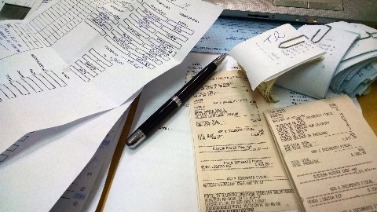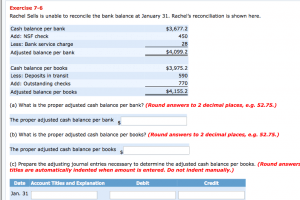
When you register for GST you choose how often you file your GST returns (your filing frequency) and how you record your GST (your accounting basis). The short-form alternate rate applies at a rate of 49.25% to all non-attributed benefits and a rate of 63.93% to all attributed benefits. In general, a benefit is attributable to an individual if it is principally assigned to, used, or available for use by that employee. However, there are other specific attribution rules to consider, such as the attribution rules for unclassified benefits. Employers can pay FBT at either a single rate of 63.93% or use an alternate rate method (whereby benefits are attributed to employees). If the 63.93% single rate is used in all of the first three quarters, the employer may use an alternate rate calculation in the fourth quarter or continue to pay FBT at 63.93%.
Submit the return
If you paid more GST than you collected, you can get a GST refund from us. A statutory-based scheme of accident insurance is funded in part by premiums payable by employers and employees. If you cannot submit your return, or pay on time penalties and interest may apply. When you are registered you add GST to your prices and pass the GST on to us. Non-resident businesses are not required to appoint a local fiscal representative for GST purposes in New Zealand.
Deducting GST from your GROSS sales price (sales price including GST)
FBT also applies to benefits received by an employee from a third party where there is a special arrangement between the employer and the third party. The FBT quarters end with the last day of June, September, December, and March. Returns are due within 20 days of the end of the relevant quarter, except for the fourth quarter return (March), which is due 31 May. The narrow category of exempt supplies includes financial services. Unfortunately for our clients with turnover $2m plus, they are obliged to be registered under the invoice basis. This means they must return the GST on sales they bill for the GST period.
Tax and accounting
You pay a 15% goods and services tax (GST) on most of your purchases in New Zealand. GST is a tax added to the price of most goods and services, including imports. This article has been reviewed and approved by Robin, who is the co-founder of NZ Pocket Guide. With more than 15 years of https://www.personal-accounting.org/the-6-best-accounting-software-for-self-employed/ experience in the New Zealand tourism industry, Robin has co-founded three influential tourism businesses and five additional travel guides for South Pacific nations. He is an expert in New Zealand travel and has tested over 600 activities and 300+ accommodations across the country.
Digital services supplied by offshore companies
GST is usually payable on goods and services held at the time you cancel your registration. The IVL applies to all visitors with a passport from either a visa-waiver country or a country what is the difference between yield to maturity & required return on a bond where you have to apply for a visitor visa to visit New Zealand. The IVL costs NZ$35 and you will pay this either when you request your NZETA or when you apply for your Visitor Visa.
- That includes food, medication, equipment, going to the hairdressers, the doctors and even the activities you are likely to do as a traveller in New Zealand.
- No, as a visitor, you cannot claim GST back once you have paid for it.
- You don’t have to charge GST on exports, which includes products you sell on the internet to overseas customers.
- The narrow category of exempt supplies includes financial services.
- That’s because the person made the koha in return for the goods or services you provided and would not have received them otherwise.
- If you need more help or have questions about the information or services on this page, contact the following agency.
More About Taxes in New Zealand
But you have to get a GST tax invoice for anything you claim over $50 and keep these records for seven years in case Inland Revenue audits your accounts. GST, aka goods https://www.online-accounting.net/ and services tax, is collected on most goods and services sold in New Zealand. It’s included in the price paid and collected by the seller, then paid to Inland Revenue.
Because GST is a tax on all goods and services, it will be applied to almost everything you purchase in New Zealand. That includes food, medication, equipment, going to the hairdressers, the doctors and even the activities you are likely to do as a traveller in New Zealand. We also go over whether it is necessary to tip in New Zealand, as well as advice for international travellers paying taxes for working in New Zealand. You must keep a record of all your invoices and expense receipts (and keep these records for seven years). You also must keep a record of any adjustments you make for business, private and exempt use of goods and services. That new piece of GST legislation mirrors similar rules governing the supply of digital services introduced in the European Union (EU) in January 2015 on the taxation of digital goods.

Your GST return is due by the 28th of the month after the end of your taxable period. You must file a GST return for every taxable period, even if it is nil. GST registrations can be submitted online or via paper applications. Non-resident companies may apply directly, or use a local tax agent to submit their application.
The cost is NZ$9 through the mobile app and NZ$12 through the website. Again, see the guide mentioned above for instructions on how to pay. Before you can work out your GST total, you need to calculate your sales and income and your purchases and expenses.

Providing services to New Zealand businesses generally does not require a GST registration. GST was introduced in conjunction with compensating changes to personal income tax rates and removal of many excise taxes on imported goods. Financial services, residential rent, and donated goods sold by non-profits fall into this category. While you don’t collect any GST when the rate is 0%, you do need to report the sales on your return. Group GST registrations are not permitted for non-resident businesses. However, a non-profit organisation selling donated items doesn’t have to register for GST and therefore the prices do not include GST.
Remember — you’re just collecting GST on behalf of the government, and you’ll need to pass on that GST when you do your return. Two-monthly means more paperwork but can be easier to keep track of. Six-monthly filing is only available if your turnover is less than $500,000 (although some exceptions apply), and it might be good if you don’t have a lot of expenses or invoices. Some rare services are exempt from GST and duty-free will offer items tax-free when landing in New Zealand from an international flight. You don’t have to charge GST on exports, which includes products you sell on the internet to overseas customers.